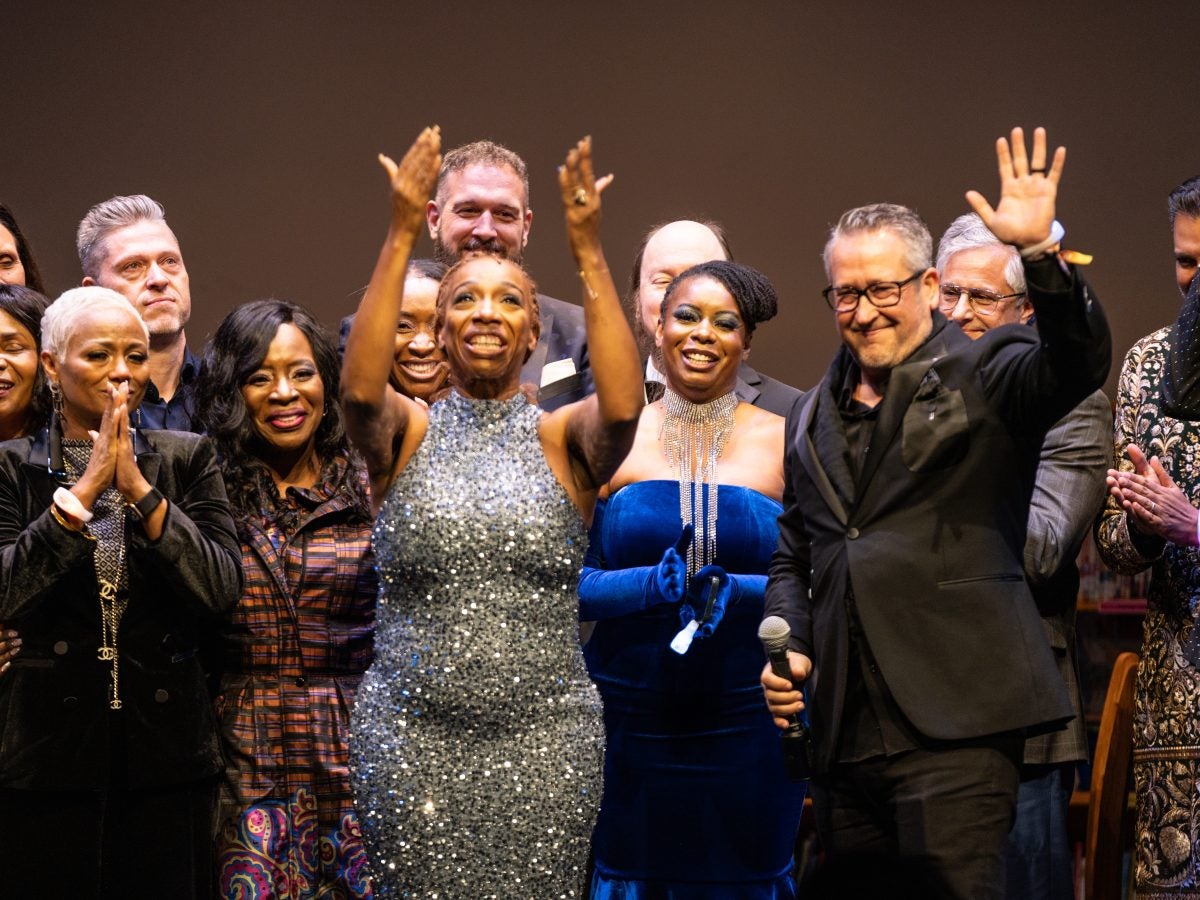Best-selling author and celebrated motivational speaker Lisa Nichols never dreamed that she would be on Broadway.
“I’m fascinated by Broadway and have immense respect for it,” she tells ESSENCE. Nichols acknowledges that it takes years of training and meticulous study for a performer to make it to The Great White Way, no less be the star—and subject—of a Broadway play. Nevertheless, on Dec. 9, Nichols took centerstage.
When My Soul Speaks: Lisa Nichols Live on Broadway was a one-night-only play that drew a crowd to the Samuel J. Friedman Theater. The one-woman show was directed by Nick Anton and Riaz Patel, with 30 producers. Notably, 16 were Black women. The show ran over two hours in length, but as a member of the audience, there wasn’t a moment when I wanted to look away.
“Our ancestors were dancing [last night] of the joy of their daughters,” she says less than 24 hours after the performance. Nichols is poised and confident, as one would expect from a professional speaker. She has the smile of a conqueror. But she also radiates a warmth and a sense of excitement—visible through her eyes during our conversation and from across the stage.
The show came together as a series of vignettes, as told by Nichols, who took the audience through decades of her life, punctuated by 11 distinctly captivating and deeply personal stories. These moments depicted periods of joy and pain, ones that took a great deal of vulnerability and reflection to share with the world.
“I wanted to stretch myself and share things that I necessarily wasn’t comfortable sharing, but I knew that they would inspire others who may have had something similar,” she says. “I wanted people to see themselves, a piece of themselves somewhere in their journey, in my story, and for that piece that they see to be validated, inspired, equipped, motivated, whatever it is, but that there’s that common ground.”
Nichols opens the play by reenacting a moment when she was down on her luck as a single mother, relying on government assistance. After that clincher of a scene, she went on to incant moments from her childhood and what it meant to grow up in South Central Los Angeles on the heels of the Civil Rights Movement. She explored becoming a student-athlete and willing her way to success, affirming, “Winners never quit, and quitters never win.” The play explored unforgettable moments of reflection, like when she sat in Nelson Mandela’s jail cell at Robben Island Prison in South Africa, and moments of triumph, like when she found love (and ultimately got married for the first time) in her 50s. But, perhaps most compelling was the moment when she relived her experience of surviving an abusive relationship.
“That particular story was the most disruptive in the entire show,” she says, mentioning it was also the most difficult to share. “There is no neat way to tell this story.” Nichols recalled fearing for her life and the life of her son Jelani, who was then a child. She depicted these moments so searingly. During rehearsals, Nichols says she would often begin to cry, causing her to forget lines, or even worse, she would stop the run-through. She felt isolated as an abused woman—these were moments that broke her.
“I wanted company, but no one knew I was abused, so I couldn’t have company.” She continues, “When I was recovering from it [the abuse], no one knew I was recovering from it.” And so, in front of a packed crowd, she had the chance to tell everyone what she’d been through. Better yet, what she’d overcome. Nichols fought past this low point, getting out of the relationship and silencing the negative voices within that told her she was not enough because of it.
“I have a unique brilliance that God gave to me, and it can only be shown through me,” she says. “Someone else’s light being super bright doesn’t dim mine and nor does my light being bright cause anyone else’s to suffer.”
This notion that everyone has “a light” is very important to Nichols. So much so that the performer handed out LED bracelets to the audience (via the theater house staff), lit them, and ended her show in song with “This Little Light of Mine.” The hymnal, sung by BJ Foster, served as a harmony with the audience, but more importantly, a reminder of who we are and what lies within us all.
With her play, Nichols’ aim was to transform and entertain. “Trasfor-tainment,” she calls it. Still, the show, and her life, is an inspiration. With both, she is encouraging people to live bolder (she even has a barometer to help you), to live in their truth, and to overcome.
“There are many mountains that I’ve already climbed,” Nichols says. “I’d like to spend my time inspiring and teaching others how to climb that same mountain if that’s their desire.”







